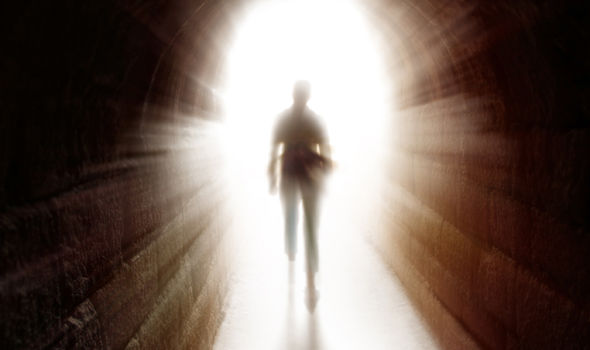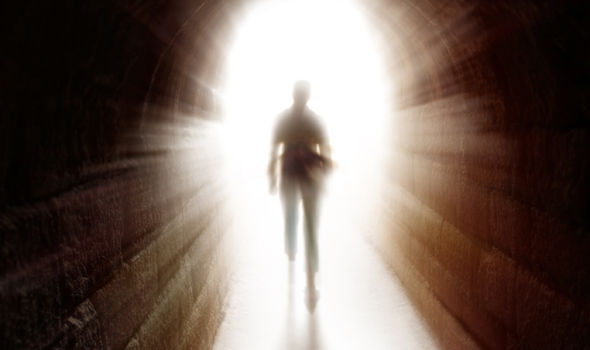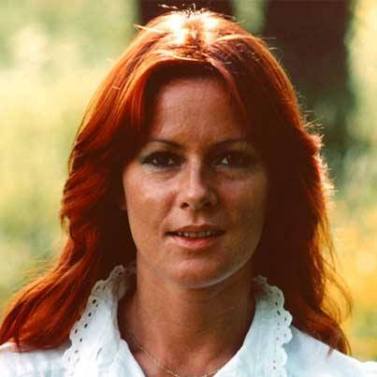 Dr. David Menton brings a wealth of knowledge from a long career to answer the important question, „Does biology make sense without Darwin?” It is often claimed that nothing in biology makes sense except in the light of evolution, but this is simply not the case. Examining evolutionist claims about the eye, the origin of feathers, and human hair, Dr. Menton shows that the answer to the question is an emphatic YES!
Dr. David Menton brings a wealth of knowledge from a long career to answer the important question, „Does biology make sense without Darwin?” It is often claimed that nothing in biology makes sense except in the light of evolution, but this is simply not the case. Examining evolutionist claims about the eye, the origin of feathers, and human hair, Dr. Menton shows that the answer to the question is an emphatic YES!
When we start from a biblical perspective, we can make sense of the world around us—no Darwin required.
Buy the DVD of this video here:http://www.answersingenesis.org/PublicStore/product/Does-Biology-Make-Sense-W…
Uploaded by 7BroncoBoy
The Evolutionary Paradigm – „Our present knowledge indeed forces us to view that the whole of reality is evolution – a single process of self transformation. – Julian Huxley, What is Science, 1955 p.278
Everyone in this box is quite sure that there is nothing outside this box. That’s a paradigm: thinking outside of this box is simply unthinkable. Now, when someone believes that the whole of reality is evolution, that there is nothing else, that everything is just spontaneously self transforming through natural processes, their best argument for evolution is 2 words: How else? There isn’t any other way.
They cannot think of any other possibility that does not include random chance processes. Because of this we have what is called Dobzhansky’s Dictum: Nothing in biology makes sense except in the light of evolution. (Theodosius Dobzhansky (1900-1975) was a leading 20th century evolutionist.
Evolution would appear to be „highly superfluous”
Some evolutionists have come to the same conclusion (as non evolutionists), that evolution is not essential. In the years that I taught at the medical I school, I didn’t bother to teach anything about evolution. Adam S. Wilkins: „Evolution would appear to be the indispensable unifying idea and, at the same time, a highly superfluous (unnecessary) one”.(From his introduction to Evolutionary processes).
Mark Kirschner, Boston Globe, October 23, 2005: „In fact, over the last 100 years, almost all of biology has proceeded independent of evolution, except evolutionary biology itself. Molecular biology, biochemistry and physiology, have not taken evolution into account at all”. He is Chairman os Systems Biology at Harvard’s Medical School and very distinguished, well known evolutionist.
Isn’t it incredible that over the last 100 years we have had the most incredible breakthroughs all over biology. Think of just molecular genetics, DNA all by itself and in many other fields.
What kinds of questions have they answered with evolution?
What about the origin of life?
P. Davies (Director of the Astro Biological Research Center at Arizona State University)in the New Scientist vol 163-2204 (1999) p 27-30: „How did stupid atoms spontaneously write their own software, and where did the very peculiar form of information needed to get the first living cell up and running come from? Nobody knows.
The only new source of genetic information is mutation. Normally cells divide only 15-20 times, maybe that is why we only live to be so old. But in cancer (An example of mutation) cells can divide forever.
What do we know about mutations?
Dr. James Crow (Chairman of Genetics at U. Wisconsin Medical School 1997) : The typical mutation is very mild. It usually has no effect, but shows up as a small decrease in viability or fertility„. This is interesting because natural selection, which we hear as being the explanation for everything, „It’s not chance,” the evolutionist will tell you, „It’s natural selection”. It takes it out of the realm of chance in order to make it inevitable. How do we define natural selection? We can define it in 2 words: Differential reproduction. Basically do you leave more offspring or don’t you? It has nothing to do with you being the meanest, baddest animal in the forest. You don’t go around kicking the other animals and taking their food away. If you don’t leave any offspring, what’s the difference? It’s differential reproduction. Yet, Dr. Crow tells us that the typical mutation shows up only as a small decrease in viability or fertility. Precisely the opposite of what we want for natural selection, where we want to have a progressive increase in the number of offspring.
One gentleman who studied this whole business of mutations and natural selection a great deal is Motoo Kimura PhD, Evolutionary Geneticist and he came up with what’s known as Kimura Distribution, it shows the effects of mutation on the population. In it, Kimura says he doesn’t even know of any natural mutations. Kimura came up with this: He said we have a no selection zone. Most mutations fall below the radar and you know what this means? It means we are collecting them. It’s called a genetic load.
Did evolutionists have the answer or did creationists have a better read on things?
Let’s start with the human eye. Bad design or bad science? Some people say the human eye is very badly designed. For example, Frank Zindler, a retired biologist says, „Although the human eye would be a scandal if it were the result of divine deliberation, a plausible evolutionary explanation of its absurd construction can be obtained quite easily…” He is saying that the eye is so badly designed that if a god of any kind were to lay any claim to it, it would be a scandal. Then he goes on to say, „However, you expect junk from evolution”. After all, you take a process that is mindless, purposeless, goalless, random chance processes… try going on a fishing trip that way, with no planning, no goal, no objective. That is why he says that is the plausible explanation (evolution) for its port construction.
The construction of the human eye – good or bad?
 Why does he say the eye is absurd? In fact a lot of biology textbooks make this same point. Dr. Menton shows a view of the retina. Did you know the retina is part of the brain? The whole eye with the exception of the cornea and the lens is part of the brain. Because it’s part of the brain, you do not have nerves in there, there’s fiber tracts and you have ganglia cells and what have you and you see the layers. It’s like a layer cake. On the more superficial aspect, we have the optic nerve fibers, then we have the ganglia, bipolar neurons, and other cells and nuclei in there and then way down in the bottom, that’s where the photoreceptor cells are. These are those cells that you may have heard of that have the rods in the cones. Cones, sensitive to color light and rods to just black and white. At the very bottom you get the pigment layer. This layer is just full of pigment. It is pitch black down there and it has a virtual lake of blood. Not just blood vessels, but big, huge channels full of blood and the reason for that is these photo receptors at the bottom are among the most highly metabolicly active cells in our body. They require a lake of blood.
Why does he say the eye is absurd? In fact a lot of biology textbooks make this same point. Dr. Menton shows a view of the retina. Did you know the retina is part of the brain? The whole eye with the exception of the cornea and the lens is part of the brain. Because it’s part of the brain, you do not have nerves in there, there’s fiber tracts and you have ganglia cells and what have you and you see the layers. It’s like a layer cake. On the more superficial aspect, we have the optic nerve fibers, then we have the ganglia, bipolar neurons, and other cells and nuclei in there and then way down in the bottom, that’s where the photoreceptor cells are. These are those cells that you may have heard of that have the rods in the cones. Cones, sensitive to color light and rods to just black and white. At the very bottom you get the pigment layer. This layer is just full of pigment. It is pitch black down there and it has a virtual lake of blood. Not just blood vessels, but big, huge channels full of blood and the reason for that is these photo receptors at the bottom are among the most highly metabolicly active cells in our body. They require a lake of blood.
What the evolutionists are saying is this: Where’s your God? He got the film in the camera upside down. Years ago I used to do photography and when loading the film in the dark, if you weren’t careful you would load it backwards and when you’d take a picture you’d get nothing. So the evolutionists say: Your God got the film upside down. You see the light coming from the top down and at the very bottom are the rods and cones. So, a photon of light has to come down from the top, going through all those layers, until it finally gets down to the bottom and the evolutionist proposes, „Wel, there goes your resolution. The retina’s going to have really lousy resolution because the photon’s been bumped around through all that stuff (the other layers) and then of course it’s going to interfere with light sensitivity”. We have 2 problems just for starters.
What they say is true enough. It would appear that it would interfere with resolution and light sensitivity. And yet, neurophysiologists have demonstrated that those rods and cones are sensitive to single photons of light. And as far as resolution is concerned, the retina is better than the lens in the cornea. Our eyes are what we call refraction limited. They’re limited by the optics, not by the retina. The retina is way ahead of the optics. There are very good reasons why you want the retina upside down: you want to keep these very demanding cells right there in that lake of blood. Another reason is, when a photon comes down to that retina, when it finally gets to the bottom it fires a photoreceptor cell and then the next thing that must happen to it is that it must be trapped in that retinal pigment layer, because if it refracted off things and came back and hit the receptor a second time on a bounce you would burn out the receptors faster than you do now. Do you have an idea how fast you burn out your rods and cones right now? They’re to be turned over about every two weeks. So there are good reasons for having it down there and I could give you a lot of others.






































































































































































































































































Un comentariu (+add yours?)